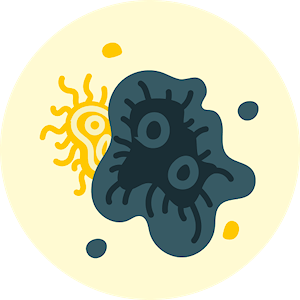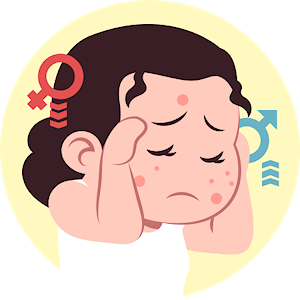
By: Dianne Desacada, MD, Dermatologist


By: Dianne Desacada, MD, Dermatologist
Discover what acne vulgaris is, how to manage it effectively, and why self-medication should be avoided.

Acne vulgaris (AV) is a common skin condition that affects people of all ages, especially during adolescence. It occurs when hair follicles become clogged with oil, dead skin cells, and bacteria, leading to inflammation and the formation of pimples, blackheads, whiteheads, or nodulocystic lesions.
Main factors contribute to acne, including:

Overactive sebaceous glands can clog pores.

Cutibacterium acnes can multiply in clogged pores, causing inflammation


Others causes:

Diet, stress, and certain skincare products may exacerbate acne

Increased androgen levels during puberty, menstruation, or pregnancy can trigger excess oil production.
Skin findings:
Acne typically appears on the face, chest, back, and shoulders characterized by noninflammatory
comedones (open or closed) and inflammatory lesions (red papules, pustules, or nodules)


Wash your face twice daily with a gentle, non-comedogenic cleanser to remove excess oil, and makeup. Avoid harsh scrubbing, which can irritate the skin.

Use a lightweight, oil-free moisturizer to keep your skin hydrated and balanced.

Opt for skincare products labeled as non-comedogenic to prevent clogged pores.

Avoid touching your face frequently to minimize the transfer of bacteria and irritation.

Eat a balanced diet rich in fruits, vegetables, and whole grains. Limit high-sugar and high-dairy foods that may trigger acne in some individuals, but not all.

Apply a broad-spectrum sunscreen daily to prevent sun-damage skin and reduce acne scars.

Drink at least 8 glasses of water to flush out toxins and maintain healthy skin.

Practice stress-reducing activities like yoga, meditation, or exercise, as stress can exacerbate acne.


Using the wrong products or treatments can irritate the skin, leading to more severe acne or complications like scarring.

Over-the-counter products may contain active ingredients that could cause allergic reactions or sensitivity that may cause unwanted pigmentations.

Self-medication can delay accurate diagnosis and effective treatment, prolonging the condition.

Misuse of antibiotics for acne can lead to bacterial resistance, making future treatments less effective.

Acne may sometimes be a sign of underlying issues like hormonal imbalance, which requires professional medical attention.
Tip: Always consult a licensed dermatologist for a proper evaluation and personalized treatment plan. They can guide you on safe and effective options to manage acne. Your skin deserves expert care!
4